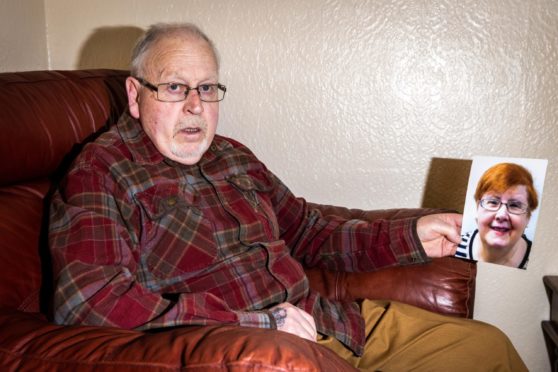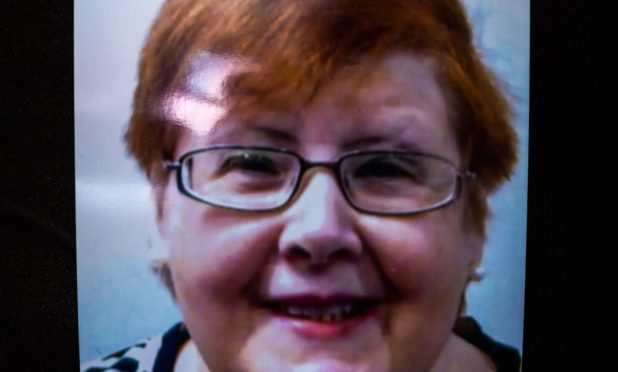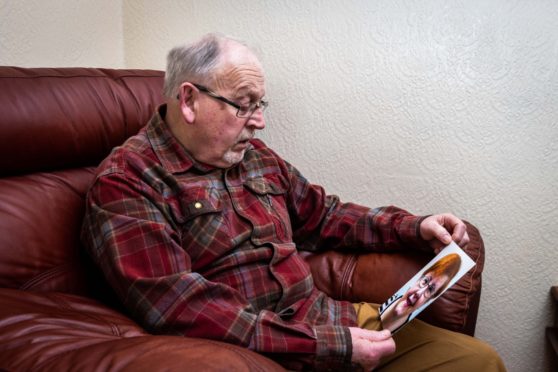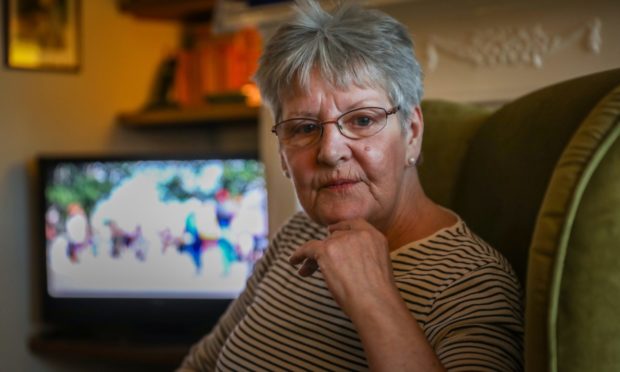A Fife pensioner has admitted he was left with “no idea” how to register his late wife’s death after being told he’d have to complete the process online.
Tommy Boyne’s wife, Jean, 71, died at the couple’s Glenrothes home on May 23 of a heart attack.
Jean had been confined to her bed for the previous two years with a range of conditions including gall bladder problems, hip issues and rheumatoid arthritis.
Tommy had been her main carer for all that time and after she died he was left devastated.
Tommy, 72, said: “Jean had been ill for three years, the past two she has been in her bed and never left her bedroom.
“I have been with her all that time. Then last Sunday she died suddenly of a heart attack.
“On Monday I wanted to begin to get everything sorted and phoned Fife Registrar to register her death.”
Fife Registrar
Tommy called the Fife Registrar and was told he couldn’t make an appointment to go in to do it any time that week.
And the registrar also revealed he’d have to complete part of the process on the phone and would be waiting for an entire week for someone to phone him back.
He said: “I was told I would need to make another appointment for another phone call to register the death the following Monday, more than seven days after Jean died.
“They said I would also need to be able to sign paperwork and complete the registration online.
“I am not remotely IT savvy and I have no idea how I will manage to do that without the means to do so. I don’t see why I can’t just go in to register her death.
“As I understand it most businesses are back at work so why can’t I go to see someone face to face to do this.
“This is so upsetting. There must be loads more older people like me who don’t know how to work computers, certainly not to the level to be able to do this.
“My wife has just died and this isn’t the time to have to be worrying about using technology.”
Funeral fears
Tommy is also worried that the delay in registering the death may mean that his wife’s funeral can’t go ahead as planned next Friday June 4.
He said: “It is all organised and if there’s any problems or delays with the registrar’s office I’m really concerned that we can’t go ahead with the funeral on the day we are prepared for.
“This whole situation is causing me so much worry and upset when I am already grieving for my wife.”
Digital exclusion
Dorothy McHugh, a member of the Scottish Pensioners’ Forum, has said the group is currently raising the issue of digital exclusion with the Scottish Government as part of an Older People’s Strategic Action Forum.
“Mr Boyne’s situation is completely unacceptable. As if this poor man didn’t have enough to cope with in the days following the death of his wife,” Ms McHugh said.
“I cannot imagine the additional distress that this demand to go on-line to report the death of a loved one has caused.”
Digital exclusion is a growing problem in every community across Scotland, where it is estimated that around 800,000 people are not on-line.
Ms McHugh added: “These people do not have the equipment, connectivity or skills to use the internet or on-line services.
“The Covid-19 pandemic has highlighted and exacerbated this issue, especially among older people.
“Increasingly, health and other services are being delivered digitally.
“The Scottish Pensioners’ Forum hear stories every day from older people unable to access services because they don’t have the right equipment or the required skills.”
Understanding of a difficult situation
Fife Council’s Chief Registrar Karen Henderson said she understood and sympathised with Mr Boyne: “We understand how difficult it can be to register the death of someone close to you and we work very hard to make the process as straightforward and stress-free as possible.
“Unfortunately national public health guidance means that we can’t offer face to face appointments for death registrations. This has been the position since remote registration provisions in the UK emergency coronavirus bill came into force in March last year.
“Anyone registering a death is given a phone appointment where we will talk through the registration process and then check all information is correct verbally or by email.
“Some people have told us they prefer this way of working while others really miss a face to face meeting, but until the law changes this is our only option.
“We will support anyone who finds the process difficult and if there are concerns about using phone or email we will take time to make sure we have verbal approval before their signature is transcribed. We then post the certificates.
“Funeral Directors should only be finalising funeral arrangements when they have received the appropriate forms from the Registrar after the death has been registered.”



